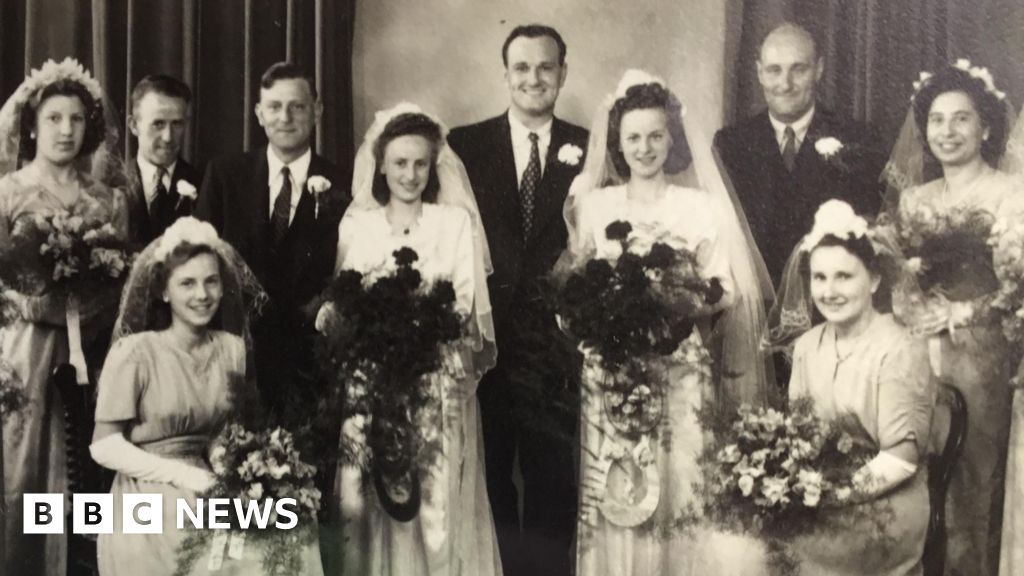- Author, Robby West
- Role, BBC News, Norfolk
How would you feel about sharing your big day with another bride and groom?
Joan Green, 97, married her husband William in 1949 and, in the same ceremony, her younger sister Monica married her husband. Mrs Green said that anyone getting ready to exchange vows should consider a double wedding like she had.
She said that couples could not only split the cost of the day, but support each other – even if a joint ceremony is now “exceptionally rare”.
Mrs Green said her and Monica had “always done things together”, so sharing their wedding day “made her so happy”.
Mrs Green met her husband in Bressingham, Norfolk, shortly before he went to fight in World War Two.
William proposed to her in writing, sending her a letter from north Africa where he was stationed, alongside the money to buy herself an engagement ring.
Mrs Green was working in a clothing factory making uniforms for the armed forces when William returned. At the time her sister was also planning a wedding.
She recalled: “We both said, ‘why not get married on the same day?'”
She said they had always done things together and were so close that “we even slept in the same bed” growing up.
She added the wedding took place at the village church in July 1949 and it was very traditional.
Their bridesmaids were dressed in two different colours, and they had two cakes and two separate best men – but only one meal was served.
Mrs Green’s husband died in 1982, but she would never forget how special her double wedding day was.
“It was lovely, it was great… I was so happy,” she said.
The great-grandmother said the benefits of a double wedding were that brides could support each other and it saved the families money.
After a happy 33-year marriage, she said she would always recommend a double wedding and added: “Try it, it worked for us.”
How can you have a double wedding?
There is nothing legally to stop anyone from having a double wedding, but it is rare and can be more difficult to arrange.
Carolyn Bain has worked as a registrar for Norfolk County Council for 14 years, and during that time has only done two double weddings.
She said that for it to work, the couples organising the day have to “see eye to eye”.
“If you see [your wedding] as just about you and your family – don’t do it,” she said.
She said couples need to decide between themselves who would go first throughout the ceremony and when exchanging their legal words.
She said in the right circumstances it can be a “lovely thing to do”.
A spokesperson for the Church of England said there was no legal bar to double weddings in its churches, but they were “exceptionally rare”.
Would a double wedding save money?
The company took data from more than 5,000 wedding insurance policies and discovered the average cost in 2012 was £11,441.
It projects that figure will rise to £24,109 in 2023 – up 11% from £21,725 just a year before.
Research from the Bank of England suggests that more people are choosing to get married midweek to save money.
Image source, Anneli Marinovich
Lucy Meehan, a wedding planner based in Shenfield, Essex, said sharing your big day could save you money but warned that “communication is key”.
She has 15 years’ experience in organising weddings and said a double wedding could be cost effective.
She said: “You could save money, especially if you are in the same family.”
She said that spouses considering holding a double wedding need be clear with each other about what they would want.
“You don’t want one couple being the centre of attention,” she said.
Her advice for those planning a double wedding was to evenly share out the “momentous” moments of the day.

